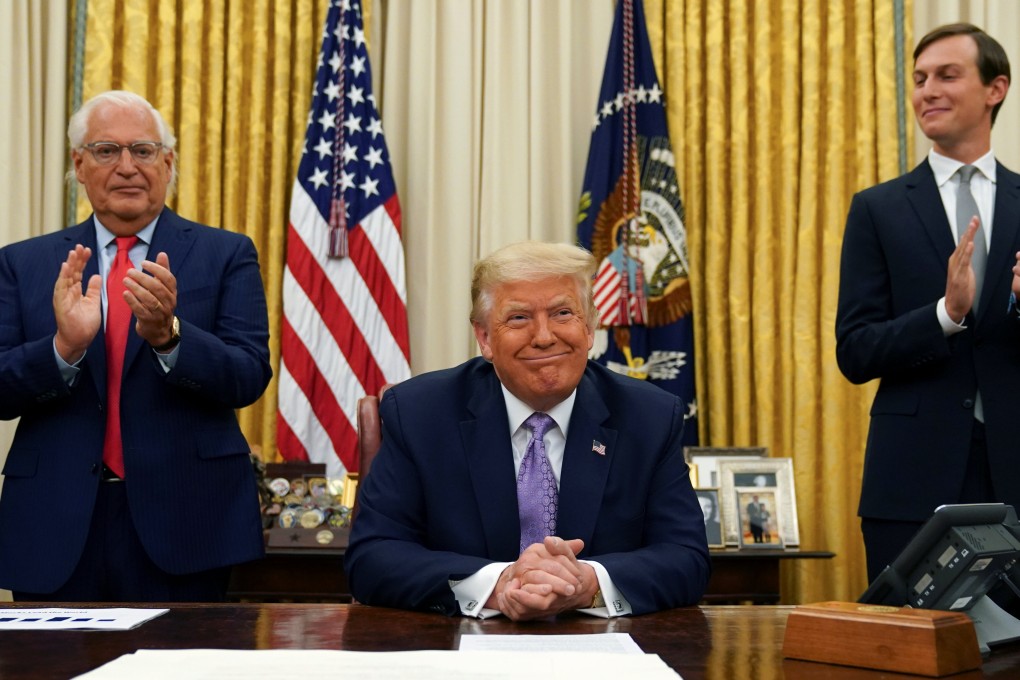Advertisement
Opinion | Peace in the Middle East? Not if Trump gets re-elected
- The former US president has a track record of helping Israel at the Palestinians’ expense
- If he wins a second term, Donald Trump’s foreign policy could lead to increased warfare in the region
Reading Time:3 minutes
Why you can trust SCMP
10

US President Joe Biden’s shrinking approval ratings have led many to consider Donald Trump’s likely return to the White House. With promises from reinforcing the Mexican border to restoring the Muslim travel ban, Trump is again the talk of the town.
While Trump speaks of solving the Ukraine war in a day, his fictitious foreign policy wizardry may not be the panacea for the Palestinian conundrum. While in office, Trump subtly shifted the dynamics left over from the Obama administration towards a scenario more advantageous to Israel, dimming the prospects for a two-state solution.
The Trump administration’s inauspicious story included the recognition of Jerusalem as Israel’s capital in December 2017. Several months later in May 2018, the United States moved its embassy from Tel Aviv to Jerusalem. David Friedman, who has legally represented Trump, was confirmed as US ambassador to Israel just a year earlier. Friedman supports the illegal Jewish settlements in the West Bank and is vehemently opposed to the two-state solution.
Advertisement
During the 2018-19 Great March of Return, a series of mostly peaceful protests that were forcibly repressed, Israeli forces killed 223 Palestinians, according to Israeli human rights organisation B’Tselem.
Trump’s United Nations ambassador Nikki Haley spoke instead of Hamas using civilians as shields. She reportedly blamed terrorist proxies for causing the violence. The Trump administration eventually left the UN Human Rights Council, citing “chronic bias against Israel” as the rationale behind the decision.
Advertisement
In 2018, aid to the United Nations Relief and Works Agency was slashed by the Trump administration, aiming to coerce Palestinians into acquiescing to its envisioned regional peace plan as well as recognising Jerusalem as Israel’s capital.

Advertisement
Select Voice
Choose your listening speed
Get through articles 2x faster
1.25x
250 WPM
Slow
Average
Fast
1.25x
-(2).jpg?itok=Mv8TYufL&v=1710224449)